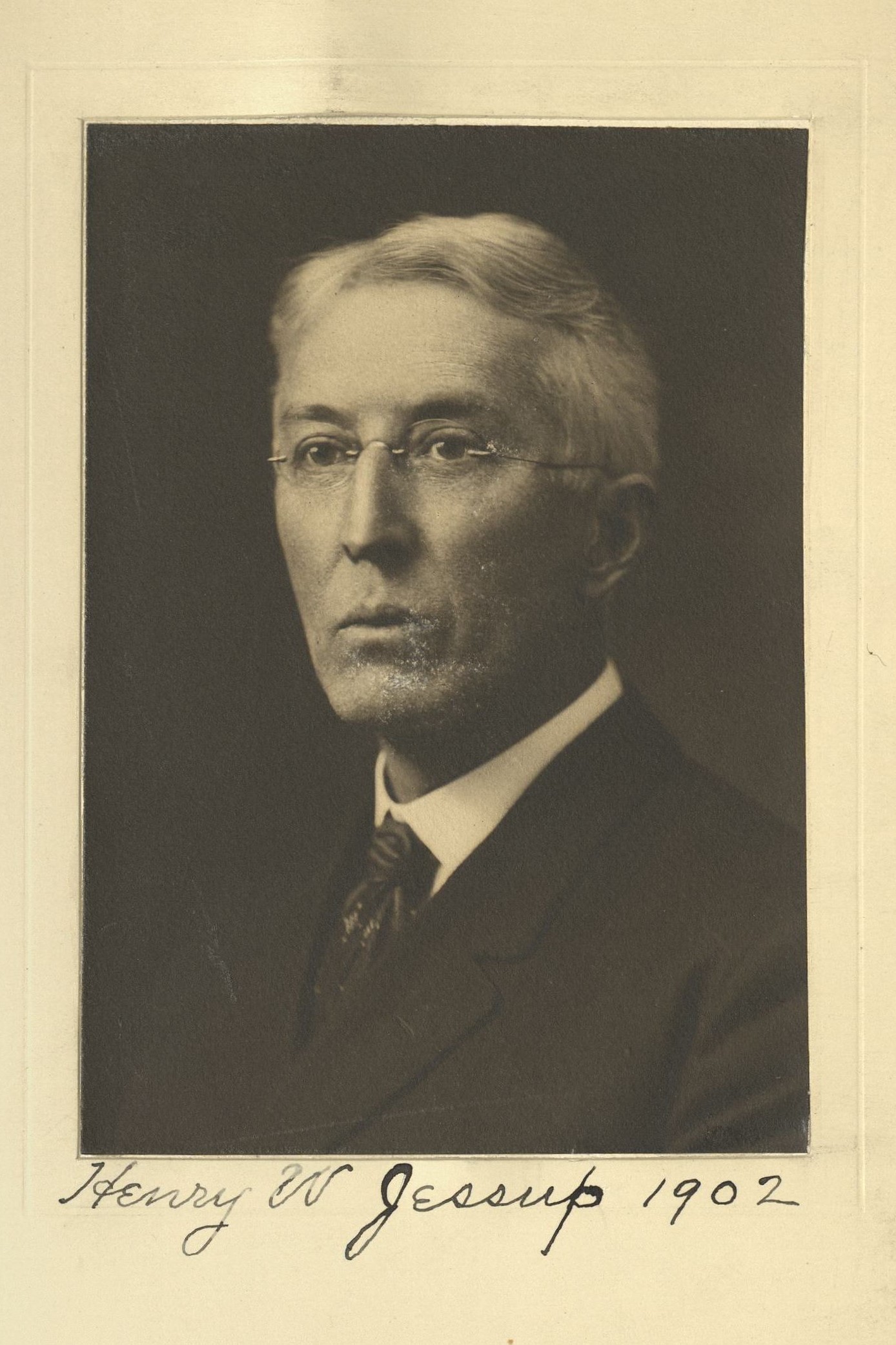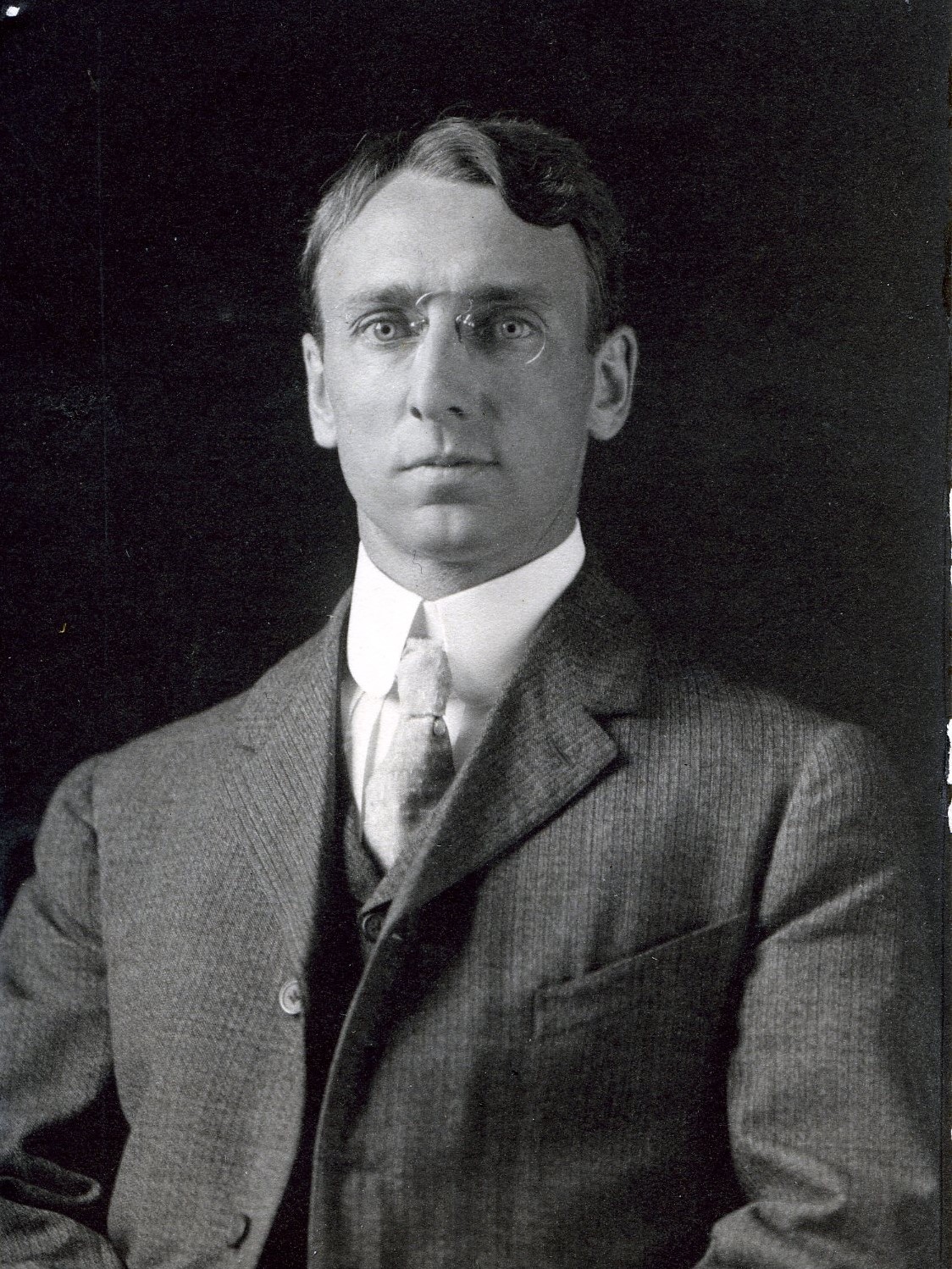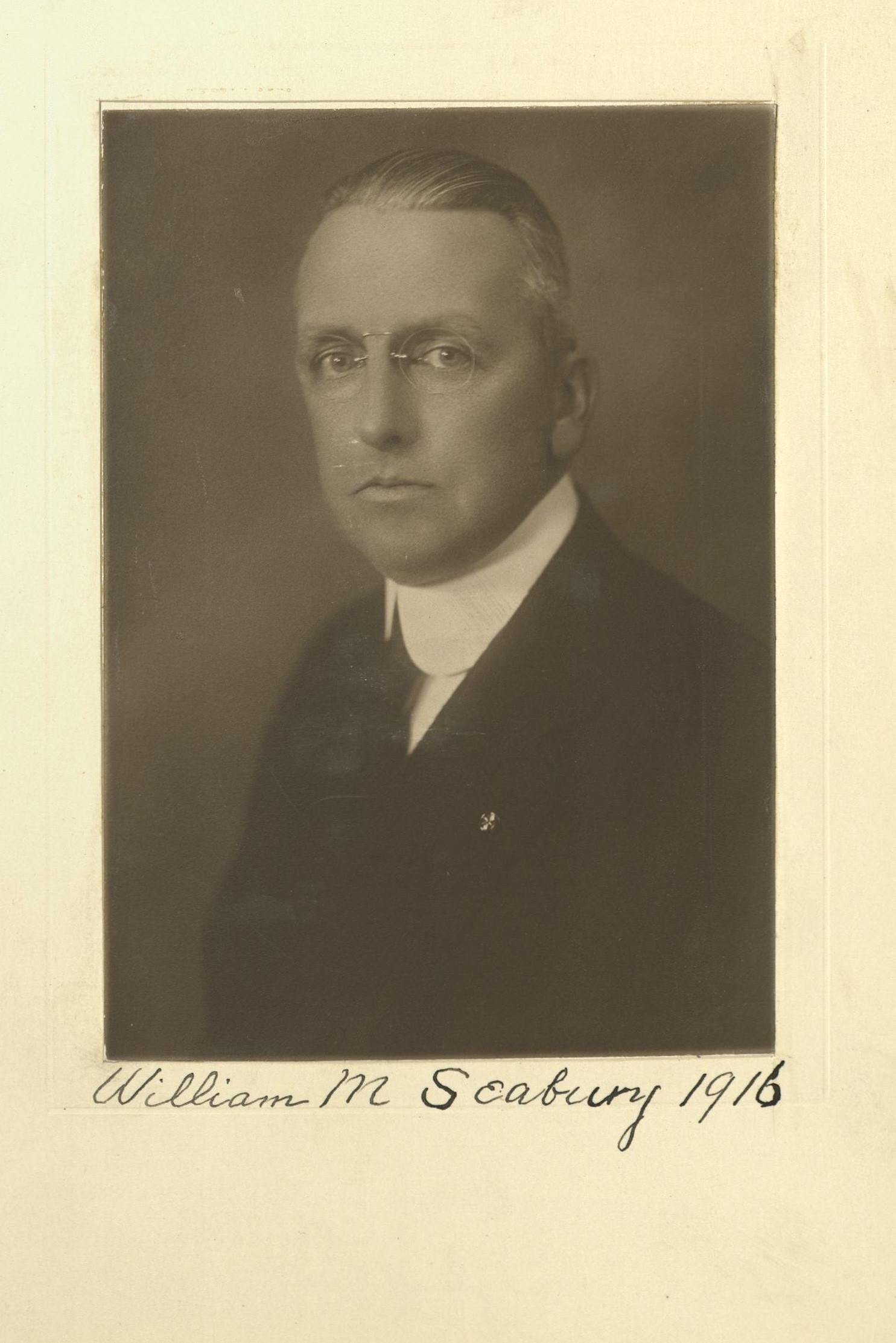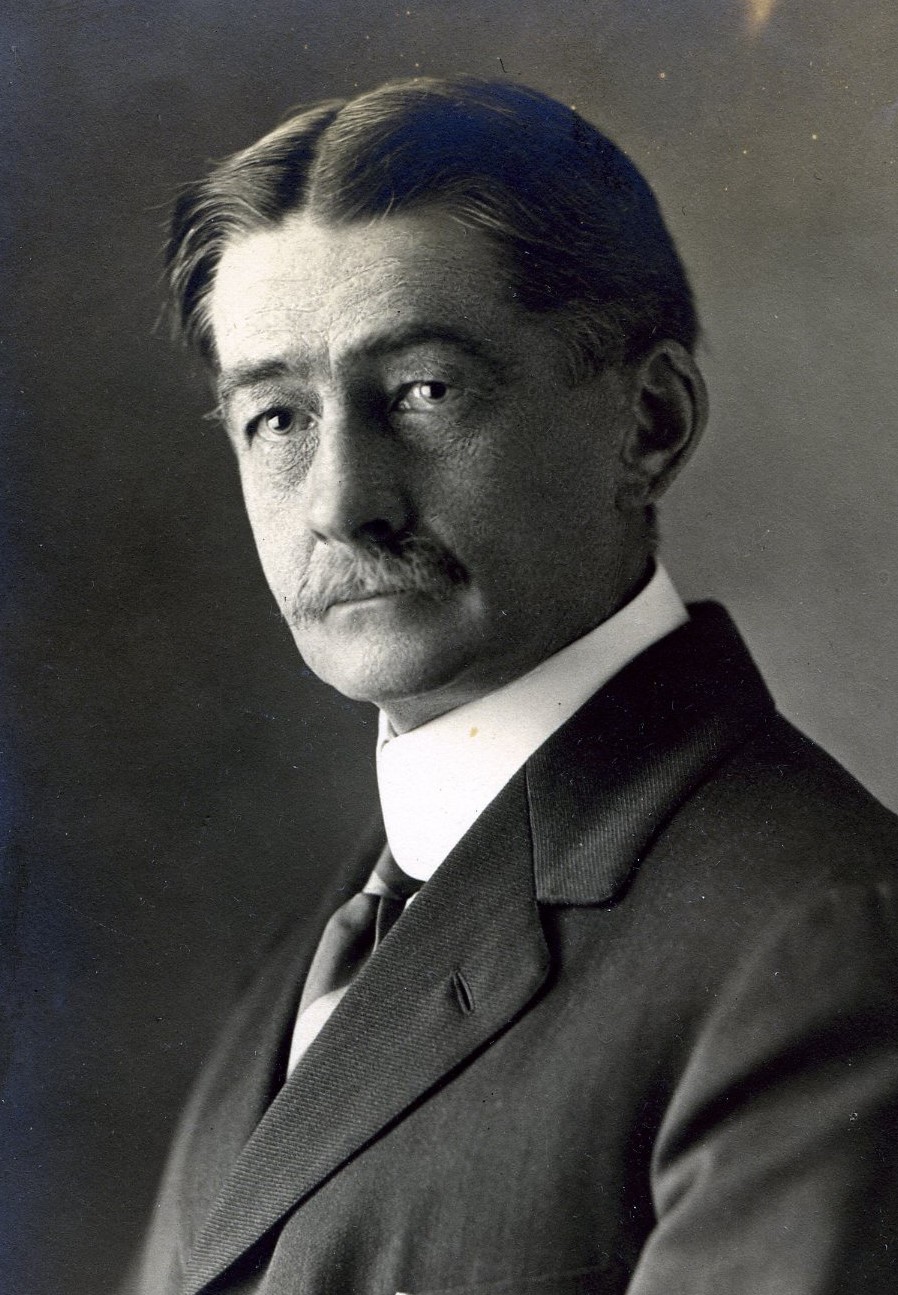Member Directory,
1847 - 1922
Henry W. Jessup
Lawyer
Centurion, 1902–1934
Henry Leavitt Smith and Charles Henry Phelps
Beirut, Lebanon
New York (Manhattan), New York
Age thirty-eight
Montrose, Pennsylvania

Century Memorial
Not many personalities have been more familiar to casual visitors at the Club-house than that which belonged with the tall, lank figure, the scrutinizing eye, the trenchant speech, of Henry Wynans Jessup. Ten minutes’ exchange of views with this always good-humored but not always indulgent critic of the passing scene would convince the interlocutor that here was a looker-on in Vienna whose impressions were worth listening to. Jessup had undisputed hold on certain activities of the Club. It is not easy, even now, to imagine bridge contests and golf tournaments proceeding at their familiar pace without his individual stimulus. But he was also master of his specialty in the law; his text-books in the field of estates and testamentary bequests issued repeatedly from the press in new and revised editions, for the shelves of fellow-practitioners. Back of all was a shrewd grasp of underlying principles, not only of the law but of politics and of ordinary human life, with a frequent dash of humor.
He displayed these qualities characteristically. Every one knows the highly divergent peculiarities of citizens who write for our daily newspapers the “letters to the editor.” Those contributions range in character from approval of yesterday’s leading editorial to resentment at the editor’s complete misunderstanding of a public question; from emphatic assertion of opinion which nobody ever disputed to defiant promulgation of New-Era politics and economics. They are the echo of those kaleidoscopic judgments, usually of an altogether impulsive sort, for which one has to be prepared in every-day conversation. Once in a while, however, letters to the editor fairly divide interest with strictly editorial utterances for their keen insight, their caustic wit or humor. This was invariably the flavor of Jessup’s frequent contributions to that department of the press. Regarding some questions (notably the Prohibition experiment) he was a highly militant controversial man-at-arms; on others he was reasonably sure to discover an unexpected point of view, often on unexpected topics.
Some of his trenchant individual judgments will illustrate the scope of his suggestive imagination. On Repeal, two years ago: Provision “for safety and duty in respect to the liquor traffic” is essential, but the primary purpose is “to get this 18th Amendment out of the Constitution.” On the N. R. A.: Why not remember Napoleon III’s similar experiment with a laboring constituency “which, accustomed thus to consider the State as bound to maintain them, will accommodate their honesty, the moment the State fails in that impossible task, to a rush on property.” In comment on a list of government publications, submitted by his Congressman for free distribution: Department leaflets on “convenient kitchens,” “rat control” and “housecleaning made easier,” are acknowledged thankfully if a bit sardonically, but executive documents on “The Bedbug” and on “Fleas and Their Control” are resented sternly as an uncalled-for governmental slur upon self-respecting households. On the O’Brien plan for a levy upon city taxicab service; “Why not a tax on parked cars in the city,” whereby “non-residents who clutter up our streets and obstruct our entrances” would be made to pay for the annoying privilege? On investment trusts: “These men assumed more than the usual fiduciary responsibilities of directors of a corporation”; they became “practically trustees of a living trust,” whose duty “they have violated by purchase of cats and dogs.” On the Federal Administration’s buying-up of surplus hogs and wheat and cotton, and forthwith selling them again: Why not copy the program of Joseph under Pharaoh, “buy up the surplus and store it, against the time when the market of this and other countries would absorb it?” On the bewildered “Recovery expedients” of our City government and the time-honored tradition of good luck which was sure to follow appearance simultaneously of a white horse and a red-headed girl: Might it not, “in these days of unemployment, put courage into the citizen if an ordinance were passed that all horses used within the city limits should be white?”
Alexander Dana Noyes
1935 Century Association Yearbook
Related Members
Member Directory Home-
 Gary N. CalkinsBiologistCenturion, 1908–1943
Gary N. CalkinsBiologistCenturion, 1908–1943 -
 Matthew C. FlemingLawyerCenturion, 1920–1946
Matthew C. FlemingLawyerCenturion, 1920–1946 -
 C. Grant La FargeArchitectCenturion, 1892–1938
C. Grant La FargeArchitectCenturion, 1892–1938 -
 Charles Henry PhelpsAuthorCenturion, 1891–1933
Charles Henry PhelpsAuthorCenturion, 1891–1933 -
 William Marston SeaburyLawyerCenturion, 1916–1949
William Marston SeaburyLawyerCenturion, 1916–1949 -
 Henry Leavitt SmithBooksellerCenturion, 1894–1918
Henry Leavitt SmithBooksellerCenturion, 1894–1918 -
 R. Bruce TaylorUniversity PresidentCenturion, 1920–1954
R. Bruce TaylorUniversity PresidentCenturion, 1920–1954 -
 Gaylord S. WhiteClergyman/ProfessorCenturion, 1913–1931
Gaylord S. WhiteClergyman/ProfessorCenturion, 1913–1931



